Used Commercial Kitchen Equipment: How to Locate and Buy Second Hand Restaurant Equipment
Are you considering to buy used restaurant equipment? If you're opening your first restaurant — or your second — you’ve probably considered it at least once. And it makes a lot of sense!
loading...
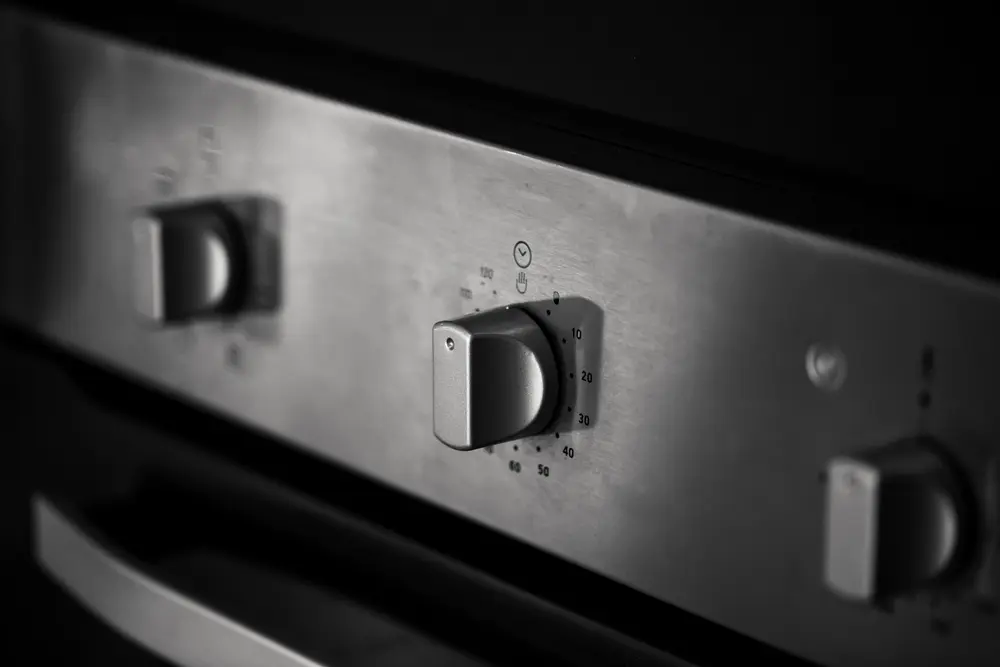
Used restaurant kitchen equipment can offer the same functionality for half the price or less as brand new equipment, sometimes with barely any wear and tear.
Where to Buy Used Restaurant Equipment
1. Local Restaurant Supply Stores with Used Sections
3. Resale and Refurbishing Stores
4. Restaurant Equipment Auctions
5. Online Suppliers with Used Sections
What to Keep in Mind Before Buying Used Commercial Kitchen Equipment
Purchasing from a Reputable Dealer
Purchase with a Private Seller
What Equipment is Worth Buying Used?
Stainless Steel Tables and Shelving
What Equipment Isn't Worth Buying Used?
How to Protect Your Used Commercial Kitchen Equipment Investment
Are you considering to buy used restaurant equipment? If you're opening your first restaurant — or your second — you’ve probably considered it at least once.
And it makes a lot of sense.
New kitchen equipment can cost tens of thousands of dollars, eating into the budget before you’ve even served your first dish.
On the other hand, used equipment can offer the same functionality for half the price or less, sometimes with barely any wear and tear.
It’s a smart move for small business owners who want to keep startup costs low.
In the first six months of 2024, 15,977 restaurants closed in the United States, leaving behind equipment that’s still in working condition.
This article will discuss where to purchase second hand restaurant equipment, the type of used kitchen equipment that is almost always fine to buy used and that which should be bought new, and the pros and cons you should be aware of.
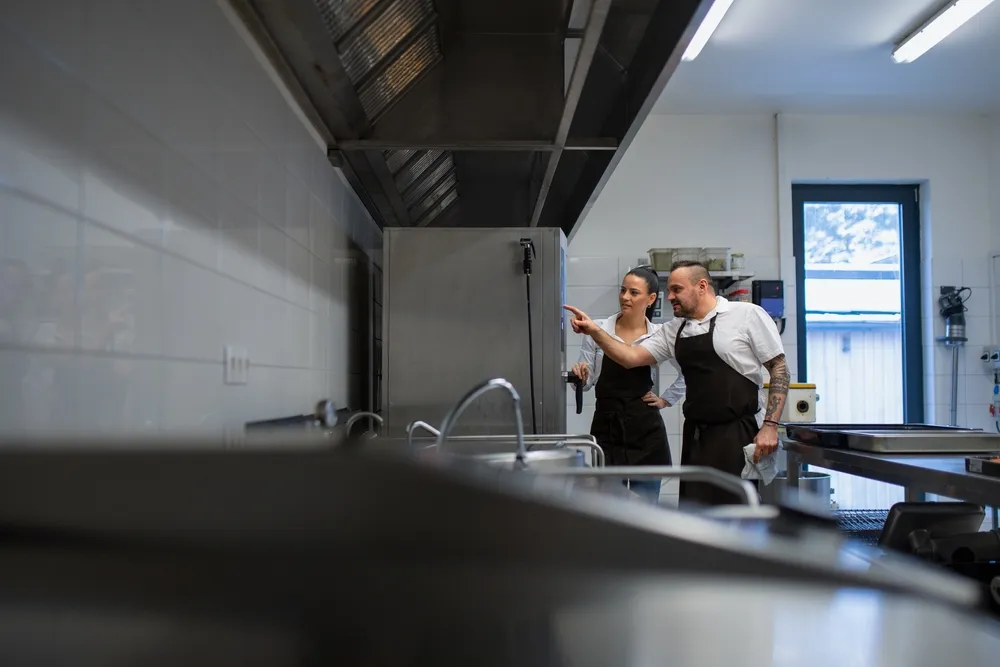
Think all used commercial kitchen equipment is a risk? We explain what's safe to buy used and what's not.
Where to Buy Used Restaurant Equipment (top)
Selling used commercial restaurant equipment is now a legitimate and growing market across the U.S. It is important for you to know where to find good deals.
In the U.S., there are some good places to find second hand restaurant equipment.
Let's explore the common sources.
1. Local Restaurant Supply Stores with Used Sections (top)
Many U.S. cities have local supply stores that specialize in both new and second hand restaurant equipment.
These brick-and-mortar retailers offer a huge benefit: you can see and touch the equipment before buying.
✅ You can measure the dimensions, open doors and drawers, test knobs, and burners, and inspect for wear and tear.
✅ Staff often have industry knowledge—they’ll guide you on which brands tend to hold up and what pieces may have known issues.
✅ Some stores even offer short-term warranties or repair services.
Downside? Limited selection. Inventory changes weekly based on what comes in from other restaurants, so you may not find exactly what you need right away.
2. Private Sellers (top)
Former owners of restaurants sell their equipment on websites such as Craigslist and Facebook Marketplace and even local classified ads. These offers are low priced, yet they are risky.
✅ It is people you are dealing with, not companies- hence, no warranties, no guarantees.
✅ You will have to screen the vendor: inquire about the age of the equipment, test it where applicable, and never give out money online without meeting the person.
✅ Watch out when it comes to equipment that has not been properly cleaned or maintained; it might seem a good bargain, but you may spend more on unreliable repairs.
This is a good choice in case you have time to do the research and thoroughly examine everything.
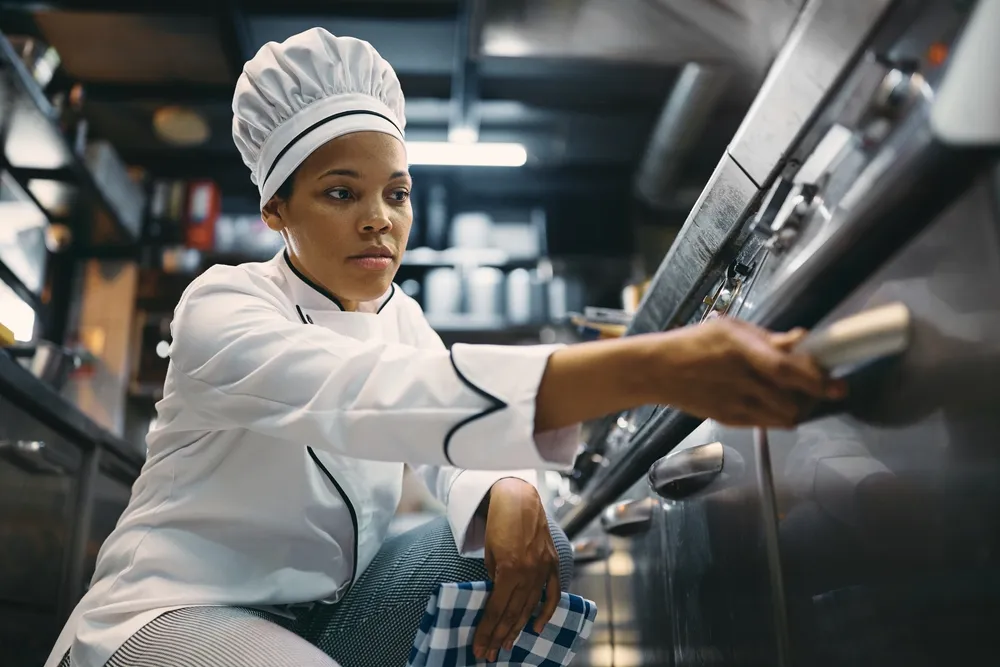
Regardless of where you choose to buy used commercial kitchen equipment, inspect it thoroughly and ask questions about its history.
3. Resale and Refurbishing Stores (top)
These stores specialize in used commercial kitchen equipment, and many retest, clean, and even refurbish equipment before putting it up for sale.
Some popular names in the U.S. include:
These companies often have both a storefront and a website, so you can browse online but still get the option to buy from a company with a reputation to protect.
If the item is refurbished or certified, you’ll likely get a short-term warranty and support.
4. Restaurant Equipment Auctions (top)
Auction houses are frequently used by restaurants to liquidate their assets after they close. For buyers, this can be a goldmine.
✅ Bidding events may occur face-to-face or online.
✅ Pricing is competitive, and you’ll often find well-maintained, branded items at half the retail price or less.
✅ Some auction houses inspect and evaluate the equipment before listing it, so the listings give you a better picture of what you're bidding on.
Popular U.S.-based auction platforms include:
Just be sure to read the auction terms carefully and ask about inspection days or preview sessions. These allow you to view the product before you decide to purchase it.
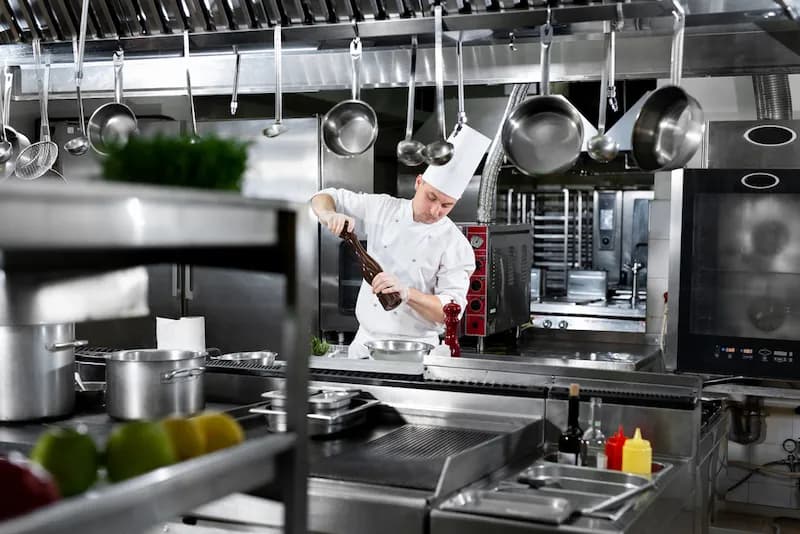
It's not uncommon to find both new and used commercial kitchen equipment in a restaurant kitchen.
5. Online Suppliers with Used Sections (top)
National online stores like WebstaurantStore and ACityDiscount don’t just sell new equipment—they often carry scratch-and-dent, open-box, and overstock items that have never been used but are priced significantly lower.
✅ Great for comparing prices across brands and models.
✅ Some listings include detailed photos, specs, and condition ratings.
✅ Shipping costs can add up, especially for heavy items like ranges or refrigerators—but some suppliers offer free or flat-rate shipping for large orders.
This option works well if you know what you’re looking for and are comfortable buying based on photos and descriptions.
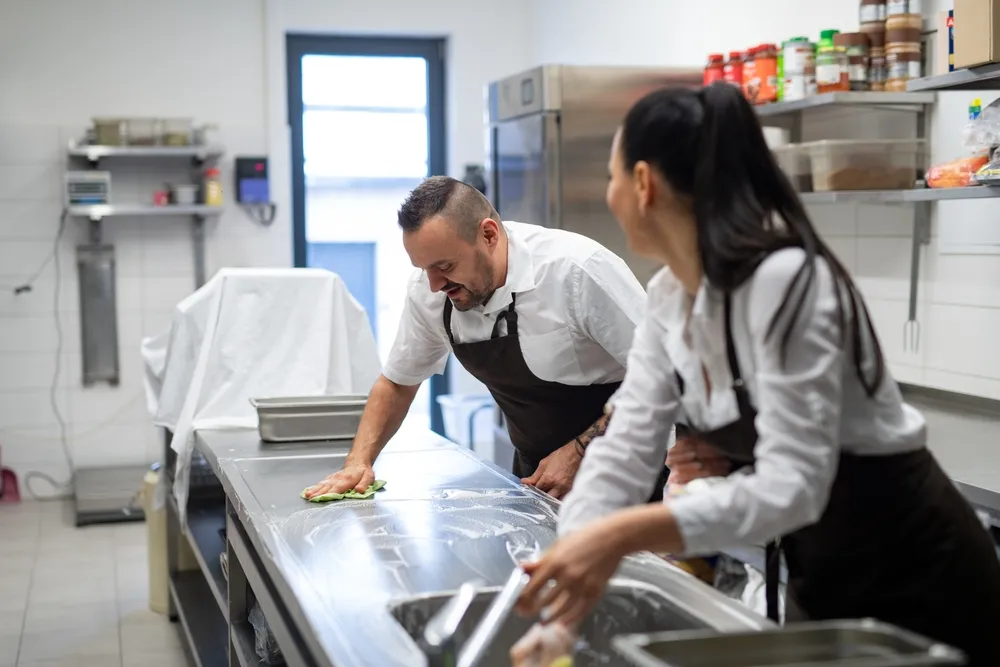
There are a variety of options for purchasing used commercial kitchen equipment.
What to Keep in Mind Before Buying Used Commercial Kitchen Equipment (top)
When considering buying any second hand restaurant equipment, one must always look at the whole process as a business entity and weigh between initial price and cost savings versus the value of reliability.
To a first-time buyer, a wary inspection could render what appears to be a good deal a costly miscalculation.
Begin by paying attention to the physical state of the equipment. The equipment may look good, but it may not necessarily work well.
Therefore, when possible, check the equipment out in person. Plug it in, switch it on, and test for stable performance.
Check to see whether the hookups are suited to the requirements of your restaurant in the event that the equipment functions on gas.
Then, inquire how old the equipment is and whether it has undergone maintenance.
Old units will still have efficiencies to maintain but may need to undergo repairs due to accumulated damage, and this may be very costly.
Ensure any parts that have a tendency to wear over time, including gaskets, burners, or blades, are in good working condition or able to be replaced casually.
The other important thing is adherence to health and safety codes in your state.
Local laws require commercial kitchens to be up to code, and purchasing obsolete or non-conforming equipment may postpone your opening date or even result in a fine.
It is always good to ensure that the product complies with the latest NSF or UL standards where possible.
Lastly, enquire on whether there is any remaining warranty or service history.
Others have equipment dealers who provide temporary repairs or short-term guarantees, and this is an added advantage.
The advice is to take time to consider such details so that you do not end up purchasing equipment that proves to be a liability rather than an asset.
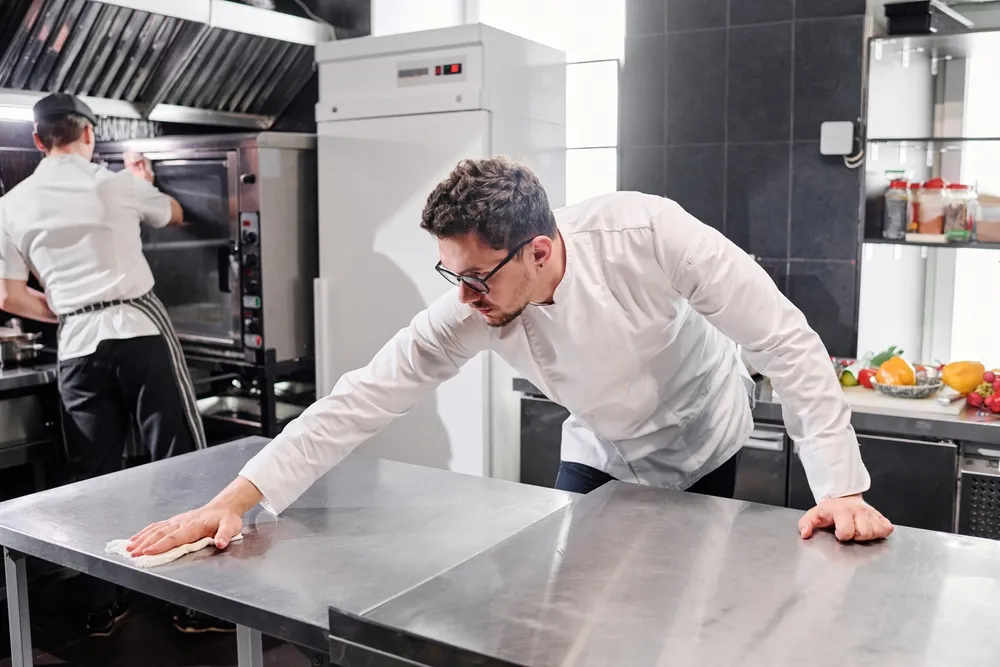
Despite horror stories to the contrary, buying used commercial kitchen equipment can be a smart and cost-effective choice for restaurant owners.
Purchasing from a Reputable Dealer (top)
Dealers of second-hand equipment, particularly those who deal with restaurant equipment, will typically inspect and test items prior to listing them.
They can even prepare and maintain the equipment in order to prolong its life.
However, you should request a written report or certificate that will attest that the unit is functional.
This increases security and makes you feel more secure about your purchase.
Other dealers also have short-term warranties or returns if they can do this. So, be sure to ask.
Purchase with a Private Seller (top)
Purchasing through a private seller – not an actual store, in other words, but an individual -- has the advantage of finding better prices, but it is riskier.
Although not foolproof, here are some ways to mitigate the risks of buying used kitchen equipment from a private seller:
Find out about the seller. When they had a restaurant, determine the duration of its business.
Machinery that belonged to an old, yet recently acquired, dead business could be in top shape.
Check the product before purchasing. Otherwise, perhaps it would be safer to purchase it through a dealer.
Check for cosmetic defects such as dents, rust, or scratches. They might not affect performance but can aid you in bargaining a better price.
Check the warranty condition and inquire about any proof that it is still covered.
If you do not know how the equipment is supposed to work, bring your chef or kitchen manager.
A second pair of eyes — particularly experienced eyes — may spot red flags that you might overlook otherwise.
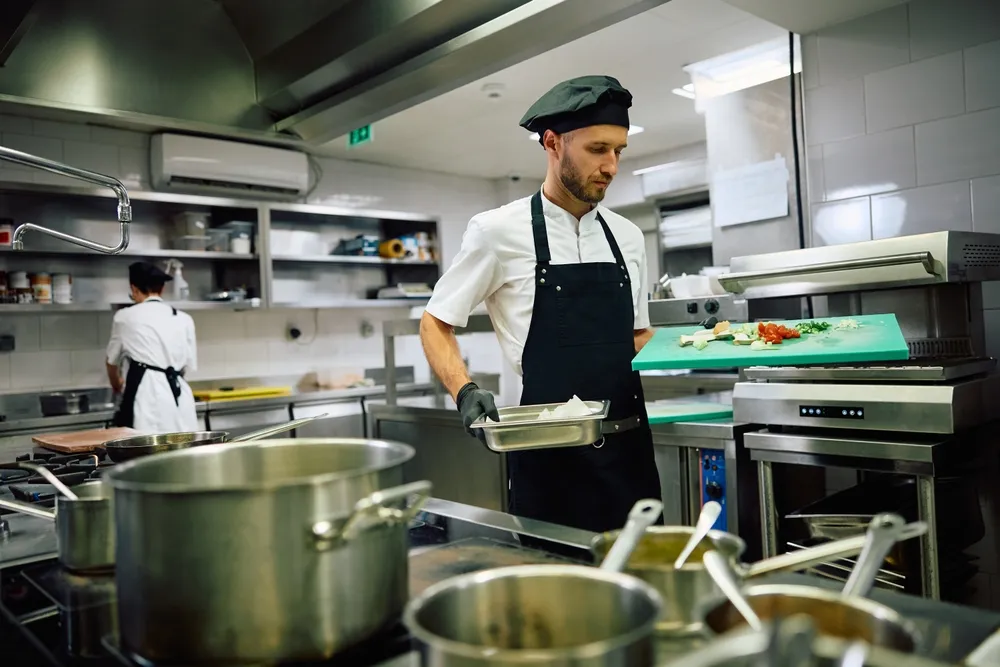
Dealers and private sellers often have different motivations and levels of expertise when it comes to selling used equipment. Do your research and ask questions to ensure you're making a well-informed purchase.
What Equipment Is Worth Buying Used? (top)
Not everything in a commercial kitchen needs to be brand new.
In fact, there are several pieces of equipment, whether new or used kitchen equipment, that hold up extremely well over time and can save you thousands when bought second-hand.
Below is a sampling of used kitchen equipment that are almost always safe and smart to purchase used.
Stainless Steel Tables and Shelving (top)
These are some of the finest second hand restaurant equipment to purchase.
Working tables, prep tables, and storage racks made of stainless steel are designed to withstand daily wear and tear and also do not possess a lot of moving parts that can break.
Used steel furniture can work as new as long as the frame is in good condition and not bent, and the surfaces do not have deep rust or corrosion.
Minor scratches will not interfere with the functionality and can secure you an inexpensive deal.
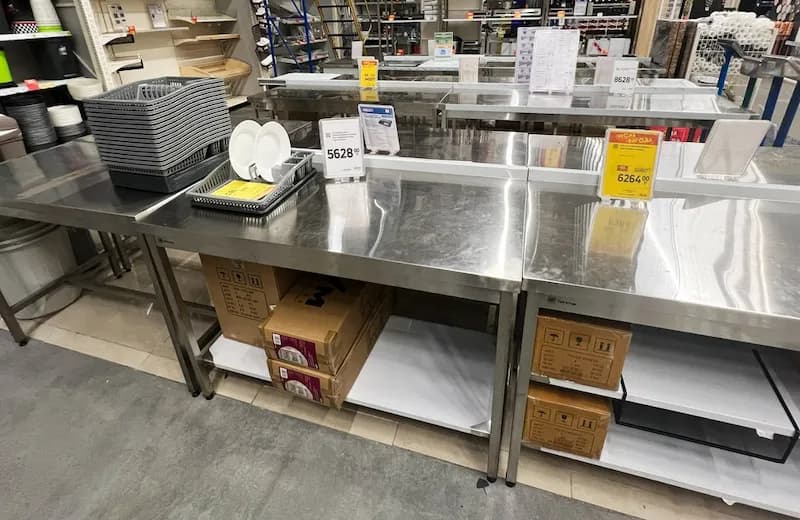
Stainless steel equipment is built to last, so investing in used tables and shelving is a safe choice.
Commercial Ranges and Ovens (top)
Gas ranges, griddles, and ovens are extremely reliable.
Some of them remain in very good working condition even after many years of use.
When it comes to used commercial restaurant equipment, these can be very good second-hand provided the burners are evenly heated, the thermostats operating, and the plant properly maintained whenever you can, test them and look for missing knobs, any broken welds, and pilot lights.
Electronic models should be avoided unless the internal wiring is intact.
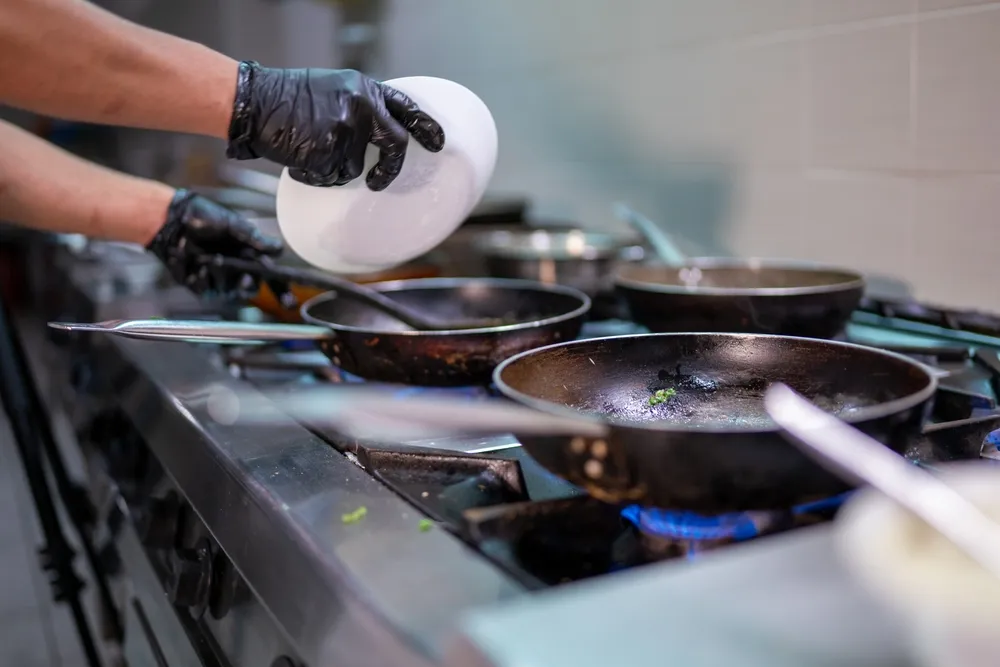
Used commercial ranges and ovens that are gas-powered tend to be more reliable and easier to repair than electric models.
Mixers and Food Processors (top)
Food processors and heavy-duty mixers (such as Hobart stand mixers) are durable.
They are fabricated using solid metals and are known to operate even after decades with little maintenance.
Simply inspect the motor performance, blades, and seals. A little worn blade is inexpensive and it does not cost much to replace a blown motor.
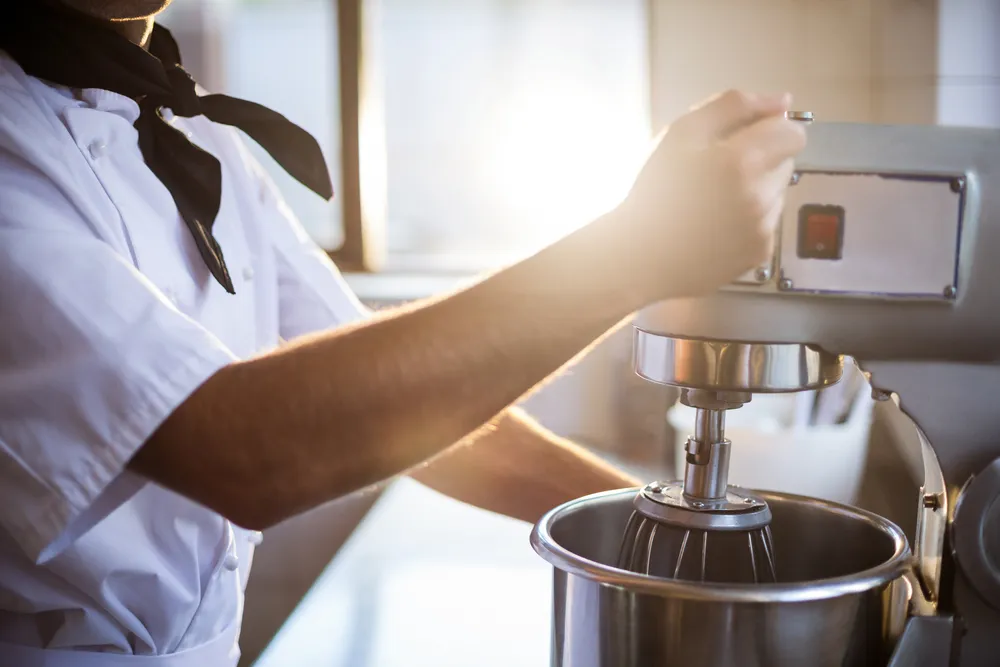
Commerical stand mixers and food processors are safe to buy used, albeit with possibility of minor parts replacement.
What Equipment Isn’t Worth Buying Used? (top)
While buying used kitchen equipment can save money, there are certain items where cutting corners often leads to bigger problems.
Here’s some used kitchen equipment you should skip buying second-hand—and why.
Refrigerators and Freezers (top)
It might seem like a great way to save thousands upfront, but a used refrigerator or freezer can quietly become one of the most expensive mistakes you make.
Why? You can’t be sure how well it’s been maintained or how much life it has left.
Cooling systems wear down over time, and once the compressor fails, you’re looking at a repair bill that may exceed the cost of the unit itself.
Worse, if it fails while you're closed or overnight, your perishable inventory is ruined.
Now you’re not only replacing food—but you're also missing sales, frustrating staff, and possibly turning away customers who expect a full menu. Those missed opportunities add up fast.
Food safety laws also demand consistent cold storage temperatures. One inspection at the wrong time and you could face fines or worse.
When it comes to refrigeration, spend the money and go new. It’s not a luxury — it’s business protection.
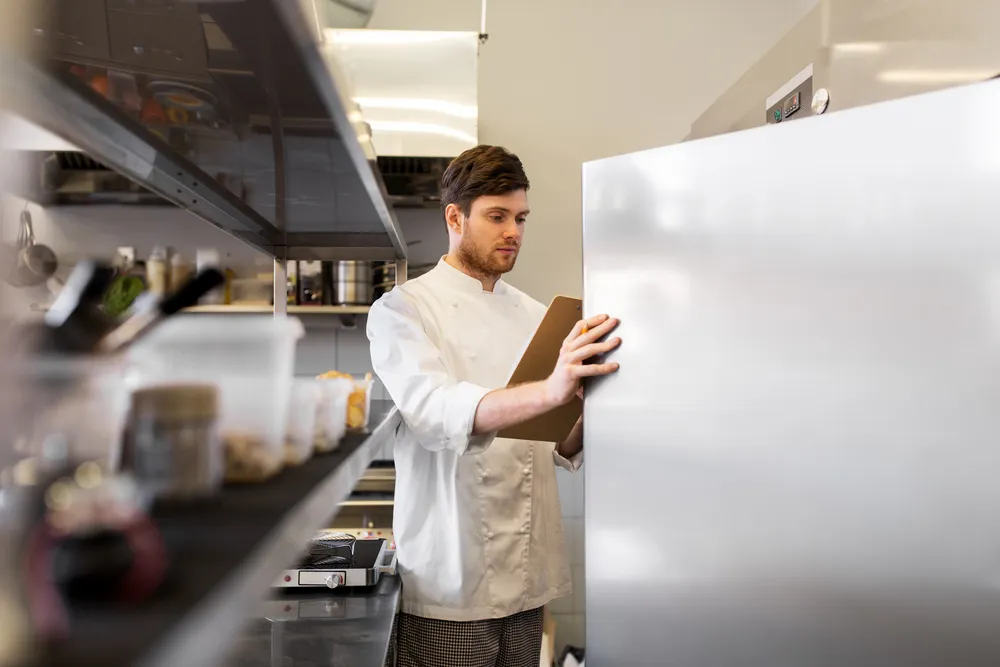
Avoid buying used commercial refrigerators.
Ice Machines (top)
Here’s a piece of equipment where cleanliness is everything—and where buying this type of second hand restaurant equipment can get you into serious trouble.
Ice machines are notorious for harboring bacteria, mold, and mineral buildup if they aren’t meticulously cleaned and maintained.
If you’re buying used, there’s no easy way to know how well it was cleaned in the past.
What looks fine on the outside could be hiding years of grime inside.
Worse, contaminated ice doesn’t just create a bad taste—it can be a health code violation that leads to temporary closure.
The health department treats ice as food, and if your machine fails a surprise inspection, you could be shut down on the spot. That kind of interruption damages your reputation fast.
Bottom line? Buy a new, sanitary ice machine and set up a regular cleaning schedule.
You’ll keep your drinks clean, your customers safe, and your kitchen open.
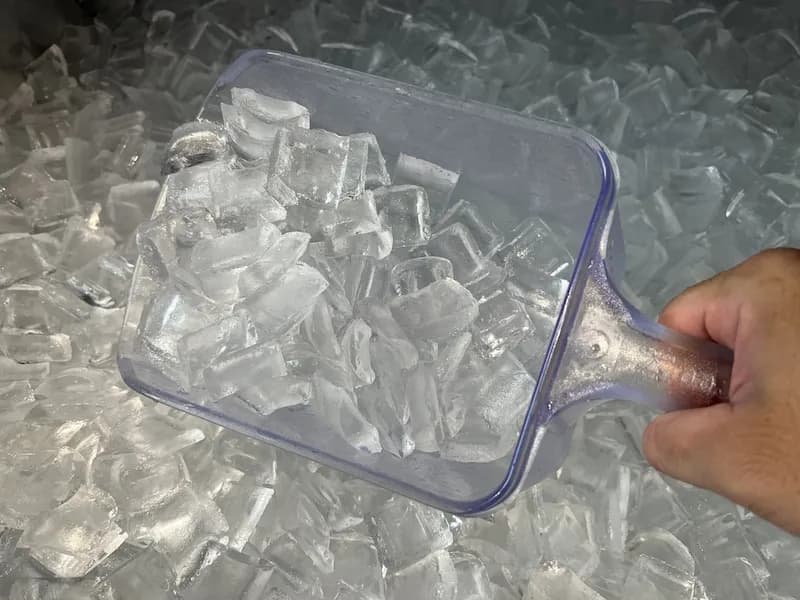
Avoid buying used commercial ice machines.
How to Protect Your Used Commercial Kitchen Equipment Investment (top)
Although used commercial kitchen equipment is less expensive in comparison to new equipment, it is still a substantial investment, especially when you purchase several items simultaneously.
Saving on such an investment begins with some forethought well before the purchase.
You should pick sellers that have a good reputation, and you should always inquire whether the equipment has been tested or refurbished, or whether it has a short-term warranty or can be returned.
Where service records or maintenance history records are available, request them before making a purchase.
Machinery that is cleaned and maintained will have a high chance of doing a great job and enduring longer.
When you have it in your hands, maintain a regular maintenance regime and adhere to it.
Ensure your employees are aware of and learn ways to operate and maintain the devices, both current and recently purchased second hand restaurant equipment.
Much of the abuse is caused by day-to-day misuse rather than defects at the factory.
When you have proper training, everything should go smoothly, and you will have a long lifespan for your used commercial kitchen equipment.
Lastly, save all receipts related to purchases, as well as the serial numbers, in case of future repairs, parts, or warranties.
Even a small amount of preventative maintenance now can prevent unexpected costs in the future as well as save your kitchen downtime at considerable costs.
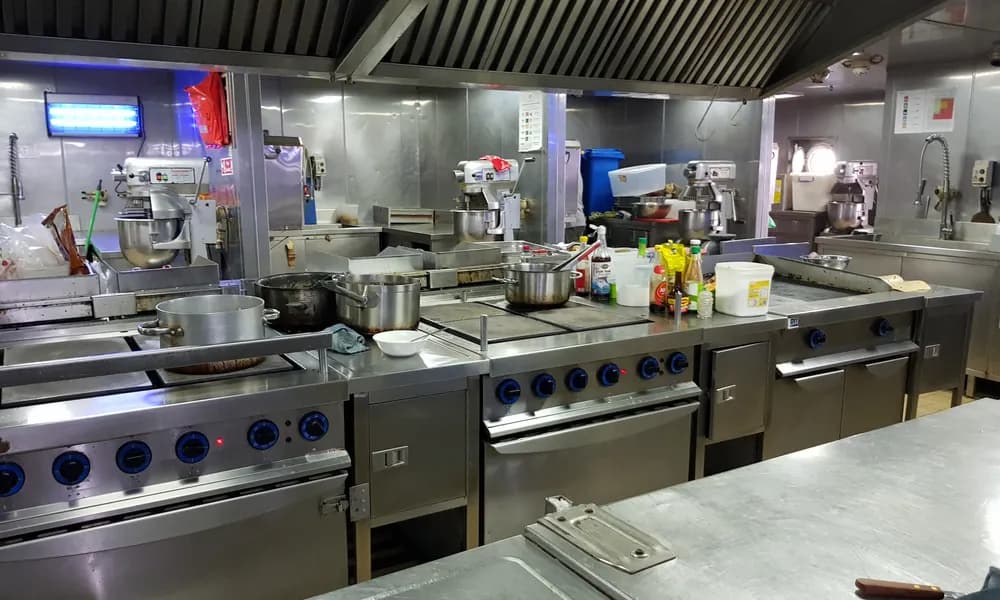
Don't neglect care and regular maintenance of your used commercial kitchen equipment. This will help extend its lifespan and ensure optimal performance.
Pros and Cons of Buying Used Commercial Kitchen Equipment (top)
| Pros | Cons |
|---|---|
| You'll save a lot upfront — allows for more budget for ingredients, staff, or marketing. | No guarantee on lifespan — you could get a great deal or end up replacing it sooner than expected. |
| Room to negotiate — especially with private sellers, you can often get an even lower price. | Limited or no warranty — once it breaks, repairs are fully your responsibility. |
| Plenty of supply — with restaurants closing regularly in the U.S., there’s a steady flow of gently used commercial restaurant equipment. | High repair costs — repair costs can be high, especially for refrigeration or electrical issues. |
| Still a smart, common choice — buying used is now standard for many new restaurant owners, not a sign of cutting corners. | Fewer choices — you might not find the exact size, brand, or model you need right away. |
| Some items are still under warranty — especially if only lightly used—just make sure to verify the paperwork. |
Conclusion (top)
Second hand restaurant equipment can be a savvy investment when dealt with intelligently.
With a little prior research and forethought, the budget can be stretched without resorting to corners being cut at the expense of the performance of your kitchen.
It is not simply about saving money; it is about preparing your restaurant for success in the long term.
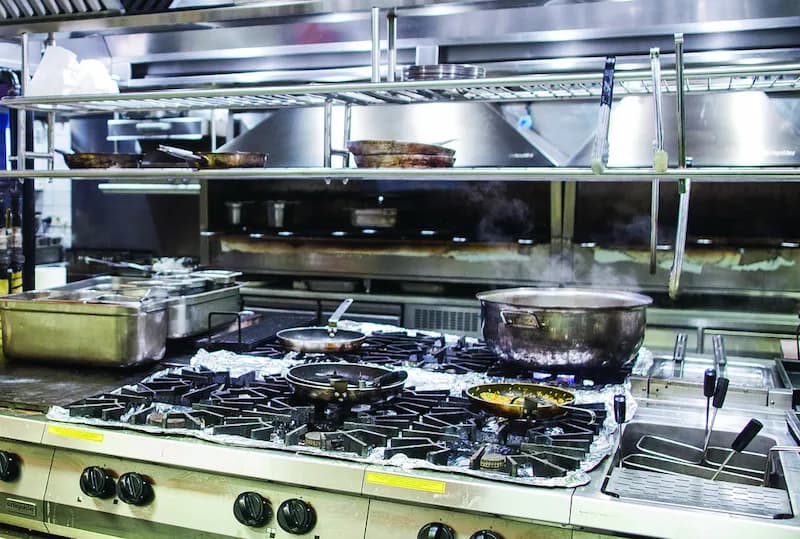
Used restaurant equipment can be a smart choice for budget-conscious restaurateurs. With careful selection and a bit of creativity, you can find high-quality items that meet your needs without breaking the bank.
©2025 Cocina Digital Hospitality Group, Inc. All rights reserved.
No part of this publication may be reproduced, stored in a retrieval system, or transmitted in any form or by any means, electronic, mechanical, photocopying, recording, or otherwise, without the prior written permission of the publisher.
We use cookies to enable you to use our site, understand how you use our site, and improve your overall experience.
Cookies allow us to personalize content, track which pages are most popular and least popular, and provide advertising that may be relevant to you.
Please note that cookies that are essential to the proper functioning of the site are required and cannot be disabled.
They are usually only set in response to actions made by you which amount to remembering your settings, a request for services, such as setting your privacy preferences, logging in, or filling in forms.
As such, they are the only cookies that are enabled by default.
You can set your browser to block or alert you about these cookies.
By continuing to use our site, you accept our use of cookies.